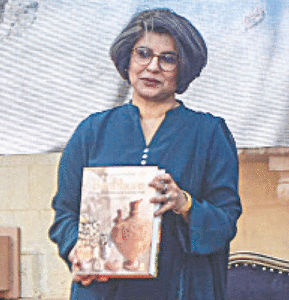KARACHI: Sindh Livestock and Fisheries Minister Abdul Bari Pitafi on Monday said that the provincial government would approach the Centre for import of small animals to control hike in milk and meat prices and provide animals to the flood-affected people at subsidised rates during the rehabilitation process.
Speaking at a press conference here on the premises of the Sindh Assembly, he said that over 80,000 small and big animals had so far reported dead in the flood-hit areas.
“The number of perished animals is bound to increase up to 300,000 as only 12 to 15 per cent of the flood-hit areas could have so far been reached for assessment of livestock losses,” he said.
Mr Pitafi said that the livestock and fisheries sector in the province was badly affected like other sectors, and it would add miseries to the people as it was the backbone of the rural economy, adding that there was an acute shortage of fodder for the animals in the province.
Says over 80,000 small and big animals are so far reported to have perished
“The torrential rains and flash floods have destroyed almost entire crop, including fodder, in the province,” he said.
Mr Pitafi said that the welfare organisations and philanthropists were working to serve humanity with the spirit of goodness in different sectors.
He urged: “They must also come forward to help in the process of providing fodder to save cattle and other animals.”
The minister said that the provincial government had planned to provide fodder initially for 10pc animals from its own resources, and added: “We need Rs18 billion to provide one-month fodder for 10pc animals.”
The provincial minister said that 24 districts of Sindh had been affected due to rains and floods, while there was water on cultivated area of about 52 thousand square kilometres.
He said that the first priority of the government was to move people to safe shelters, although animals were affected in large numbers and were dying due to starvation, diseases, accidents and other causes.
The minister said there was a dire need for fodder, medicines and vaccines to save millions of animals. “Talks with the federal government in this regard are also going on,” he added.
He appealed to people to work in the livestock sector to stabilise the economy and solve problems like food shortage.
Mr Pitafi said there was a loss of Rs27bn in livestock at the time, adding that there was a risk of more animals dying if they were not provided fodder timely.
To a question, he said over 2.5 million families had been affected by the torrential rains and flash floods across the province.
“Only 12pc to 15pc affected people are being helped at the moment,” he added.
He said if timely measures were not taken, five million people might be affected due to lack of food.
Published in Dawn, September 6th, 2022












































Dear visitor, the comments section is undergoing an overhaul and will return soon.